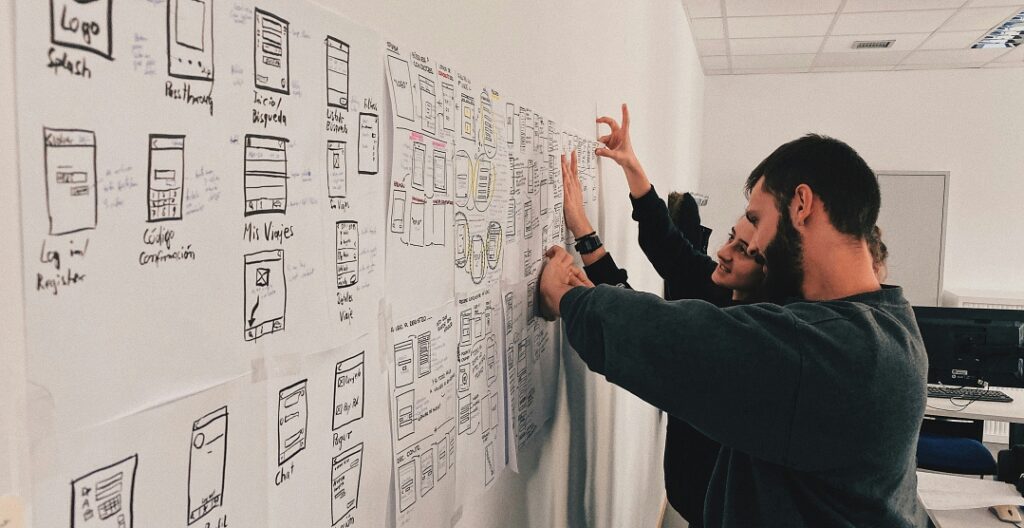Embracing traditional processes stifles growth and innovation. Organisations that boldly challenge the status quo through strategic process improvements seize significant competitive advantages, including enhanced efficiency, substantial cost savings, and increased customer satisfaction. It’s time to invest in transformative practices that drive success.
Understanding the Status Quo Bias
The status quo bias refers to the preference for maintaining current conditions, often due to fear of change or uncertainty. This bias can lead organisations to resist necessary transformations, even when existing processes are inefficient or outdated. Overcoming this bias is crucial for fostering innovation and achieving long-term success (ModernAnalyst.com, 2024).
The Power of Disruptive Innovation

Disruptive innovation involves introducing new processes or technologies that significantly alter existing business models. Unlike incremental improvements, disruptive innovations can redefine industries and create new markets. For example, Netflix transformed from a DVD rental service to a leading streaming platform by embracing digital technology and continuously refining its processes to meet evolving consumer demands (Hilcher, 2024).
Real-World Examples of Process Improvement
Numerous organisations have successfully implemented process improvements to disrupt their industries:
- 3M saved approximately $30 million annually by redesigning processes to recycle and reuse waste materials, demonstrating the financial and environmental benefits of process optimisation (AIMultiple, 2024).
- Aegon UK eliminated an annual cost of £20 million on external contract resources by adopting Lean Six Sigma, highlighting the potential for substantial cost savings through process improvement (AIMultiple, 2024).
- McLaren and GlaxoSmithKline (GSK) collaborated to apply Formula 1 pit stop techniques to GSK’s toothpaste production line, reducing changeover times by 60% and increasing annual production by 20 million units. This cross-industry application of process improvement showcases the versatility and impact of innovative thinking (Wired, 2015).
The Benefits of Disrupting the Status Quo — and How to Get Started

Disrupting entrenched processes delivers multiple benefits: improved operational efficiency, better customer experiences, reduced costs, and greater adaptability in the face of market shifts. For business owners, the hardest part is often overcoming the inertia of taking the first step. Start by reframing change as an opportunity rather than a threat. Focus on small, low-risk pilot projects to build momentum and confidence. Involve employees early, celebrate quick wins, and use data to demonstrate the tangible impact of new approaches. By fostering a mindset that embraces continuous improvement and calculated risk-taking, businesses can break free from outdated models and position themselves for sustainable success.
Key takeaway
Disrupting the status quo through strategic process improvements is essential for organizations aiming to thrive in a competitive landscape. By challenging existing norms and embracing innovative methodologies, businesses can achieve remarkable transformations that drive growth and success.
References
- AIMultiple. (2024). 55 Process Improvement Case Studies & Project Results. Retrieved from https://research.aimultiple.com/process-improvement-case-studies/
- Hilcher, D. (2024). Netflix: A Case Study in Business Process Transformation. LinkedIn. Retrieved from https://www.linkedin.com/pulse/netflix-case-study-business-process-transformation-david-hilcher-xqwsc
- ModernAnalyst.com. (2024). Disrupting the Norm: A Business Analyst’s Guide to Status Quo Bias. Retrieved from https://www.modernanalyst.com/Resources/Articles/tabid/115/ID/6608/Disrupting-the-Norm-A-Business-Analysts-Guide-to-Status-Quo-Bias.aspx
- Wired. (2015). How McLaren Uses F1 Tech to Reinvent Global Companies. Retrieved from https://www.wired.com/story/mclaren-technology-innovation
—
Photo credit: Vitaly Gariev, Konstantin Rogovenko, Alvaro Bernal





